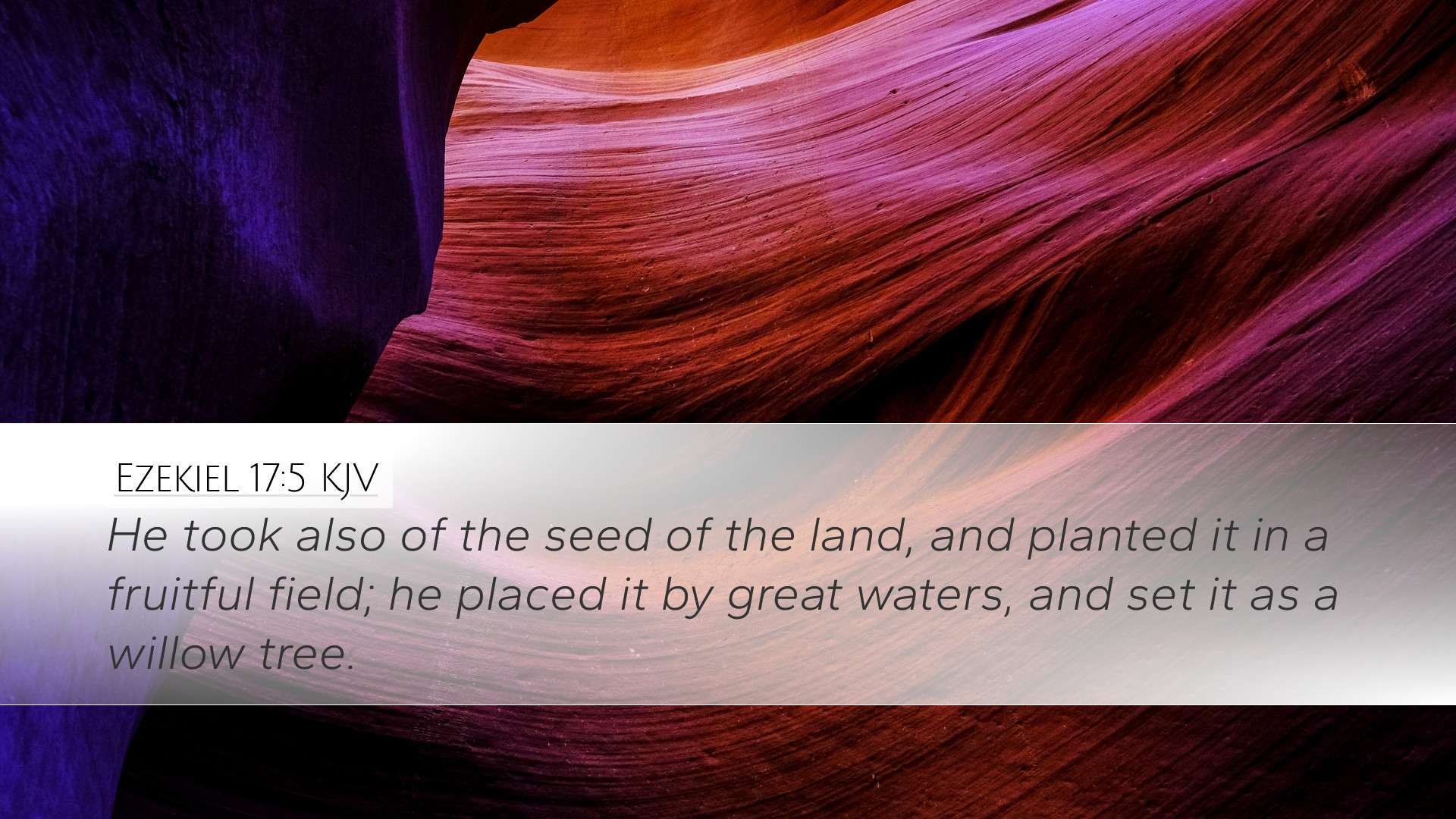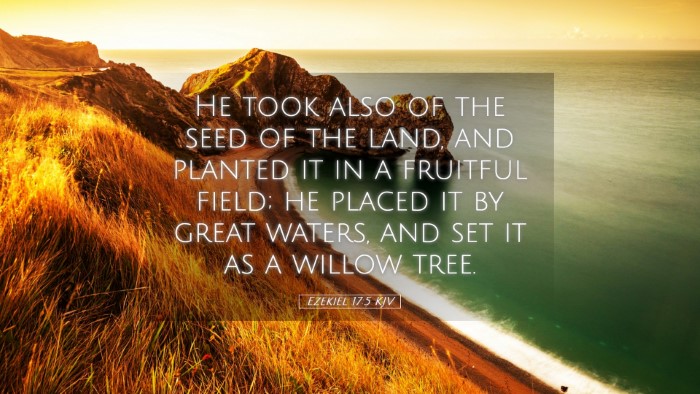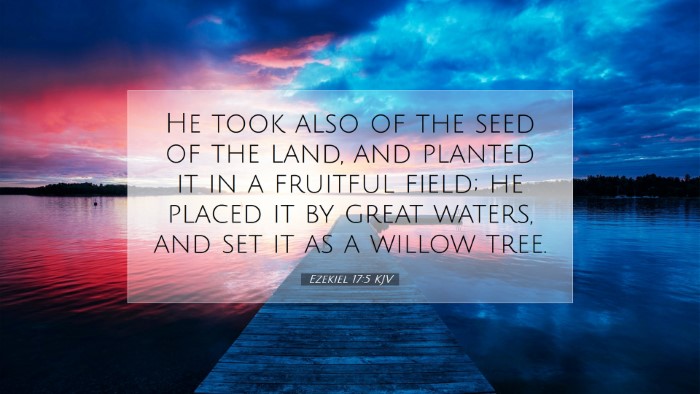Ezekiel 17:5 Commentary
Bible Verse: Ezekiel 17:5 - "He took also of the seed of the land, and planted it in a fruitful field; he placed it by great waters, and set it as a willow tree."
Introduction
The verse from Ezekiel 17:5 serves as a critical juncture in God's message through the prophet Ezekiel, illustrating themes of growth, potential, and hope amidst desolation. In this verse, the imagery of planting a seed symbolizes God's intentions for the nation of Israel, as elucidated in various public domain commentaries.
Contextual Background
This passage is part of a parable that Ezekiel presents to communicate profound spiritual truths regarding Israel's fate and God's redemptive plans. To appreciate the full weight of Ezekiel 17:5, one must recognize the larger narrative concerning Israel's exile and God's promises of restoration.
Verse Analysis
The phrase “he took also of the seed of the land” can represent God’s choice and selection of Israel from among the nations. The act of planting highlights God’s intention for growth and flourishing.
Commentary Insights
-
Matthew Henry’s Commentary:
Henry sees this verse as a divine planting of Israel amidst the nations, signifying hope and covenant loyalty from God. The fruitful field represents God’s favorable conditions, and the “great waters” signify the abundance provided through divine providence.
-
Albert Barnes' Notes:
Barnes detailed how the planting in a “fruitful field” indicates that God's plans are not merely for survival but for abundance. This metaphor reveals God's desire for Israel to thrive spiritually and physically, underlining His nurturing character.
-
Adam Clarke's Commentary:
Clarke emphasizes the significance of the “willow tree,” which is known for its flexibility and resilience. This symbolizes the adaptive nature of Israel that God desires, highlighting that, despite their trials, they are intended to flourish again.
Theological Implications
The theological ramifications of Ezekiel 17:5 transcend mere historical context. This verse encourages an examination of divine providence, suggesting that even when circumstances appear dire, God’s ultimate purpose is for restoration and growth.
God's Sovereignty and Provision
This verse illustrates God's sovereignty in choosing and nurturing His people. By planting Israel in a fruitful field, God underscores His provision, reminding believers that their success and sustenance come from Him.
Hope and Restoration
For pastors and theologians, this verse serves as a beacon of hope in the face of despair. The act of planting conveys God’s unwavering commitment to restore His people, assuring that their trials will not define their destiny.
Application for Today
In contemporary application, Ezekiel 17:5 calls believers to trust in God's plans for growth and renewal. It serves as a reminder that they, too, are planted by the waters of spiritual abundance and are nurtured by God’s grace.
Lessons on Growth and Faith
This passage challenges individuals and communities within the church to reflect on their own planting. Are they rooted in God’s word? Are they drawing from the “great waters” of spiritual life and sustenance?
Encouragement for Seasons of Despair
For those experiencing spiritual drought or feeling exile from God’s blessings, this verse is an encouraging reminder. Just as God planted His people in fertility, He is able to bring forth new life in barren times.
Conclusion
Ezekiel 17:5 encapsulates the hope embedded in God's promise of restoration for His people. By understanding the depth of this verse through the insights of revered commentators, readers can glean not just historical wisdom, but also rich theological truths applicable to their own lives and faith communities.


